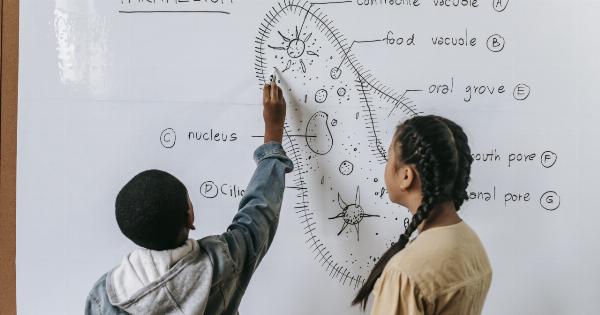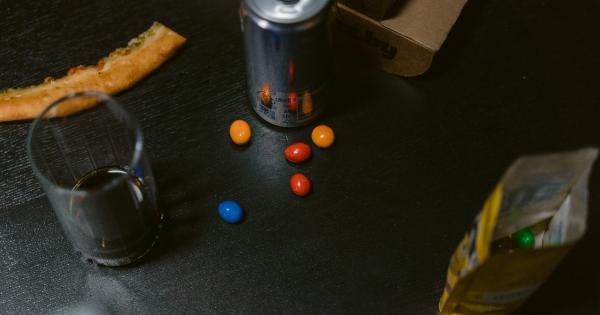Habits play a crucial role in our daily lives. From brushing our teeth in the morning to hitting the gym after work, habits help us streamline our activities and make them automatic.
But have you ever wondered how long it takes for a new habit to become a routine? In this article, we will explore the science behind habit formation and discover the approximate time it takes to turn a new behavior into an ingrained routine.
The Habit Loop
Before diving into the timeframe of habit formation, it is essential to understand the habit loop. Every habit consists of three key elements:.
- Cue: A trigger that initiates the habit.
- Routine: The behavior or action itself.
- Reward: The positive reinforcement received after completing the routine.
These elements create a loop that reinforces the habit over time. It is important to note that understanding and manipulating the habit loop can significantly impact the speed of habit formation.
The Myth of 21 Days
You may have heard the popular belief that it takes 21 days to form a new habit. However, this number is merely a misguided myth. The notion stemmed from a misinterpretation of Dr.
Maxwell Maltz’s work on self-image and behavior, which suggested it takes about three weeks for patients to adjust to changes like facial surgeries. While this timespan may be true for some individuals, it is not widely applicable to all habits.
The Truth Behind Habit Formation
According to a groundbreaking study conducted by Phillippa Lally and her colleagues at University College London, the time required to develop a habit can vary significantly among individuals.
The researchers discovered that, on average, it takes approximately 66 days for a new behavior to become automatic.
However, it is important to note that this is an average and the time can range from 18 to 254 days depending on the person and the complexity of the habit.
While simple habits like drinking a glass of water every morning may require a relatively shorter time, complex habits like learning to play a musical instrument may take significantly longer.
Factors Affecting Habit Formation
Habit formation is influenced by numerous factors that can either accelerate or hinder the process. Let’s explore some of these factors:.
1. Consistency and Frequency
The more consistent and frequent you are with a behavior, the faster it is likely to become a habit. For example, if you want to make exercising a habit, you need to stick to a regular workout routine and do it frequently, preferably every day.
Consistency reinforces the habit loop and reduces the likelihood of relapse.
2. Commitment and Motivation
Having a strong commitment and motivation towards developing a habit can significantly shorten the time it takes for it to become routine.
When you are deeply invested in a behavior and have a clear and compelling reason behind it, you are more likely to repeat the routine consistently until it becomes automatic.
3. Environment and Context
The environment and context in which a habit is practiced can have a significant impact on its formation.
For example, if you want to make reading a daily habit, creating a cozy reading corner and setting aside a specific time for reading can make it easier to stick to the routine. Designing your environment to support the habit creates cues that trigger the behavior and increase the chances of habit formation.
4. Accountability and Support
Having someone to hold you accountable and provide support along the way can be immensely helpful in forming new habits.
Whether it’s a friend, a coach, or an online community, sharing your progress, and receiving encouragement can keep you on track and motivated to continue until the behavior becomes automatic.
5. Habit Stacking
Habit stacking involves attaching a new habit to an existing one. By leveraging an already ingrained routine, you can piggyback the new behavior onto it, making it easier to remember and integrate into your daily life.
For instance, if you want to develop a habit of meditation, you can link it to brushing your teeth, performing the meditation right after completing your dental hygiene routine.
6. Positive Reinforcement
Providing yourself with positive reinforcement and rewards can accelerate the habit formation process. Celebrating small milestones and achievements related to your habit can motivate you to keep going.
Rewards can vary from treating yourself to a small indulgence or simply acknowledging your progress and giving yourself a pat on the back.
7. Personal Motivation Style
Understanding your personal motivation style can help you tailor your approach to habit formation.
Some individuals are motivated by extrinsic factors, such as external rewards or recognition, while others are driven by intrinsic factors, such as personal satisfaction or a sense of accomplishment. Identifying your motivation style can guide you in finding the most effective strategies to develop a new habit.
Conclusion
In conclusion, the time it takes for a new habit to become routine varies from person to person and depends on various factors.
While the popular belief of 21 days has been debunked by scientific research, the average time for habit formation is approximately 66 days. Taking into account factors such as consistency, motivation, environment, and habit stacking can significantly impact the speed of habit formation.
So, whether you’re trying to incorporate a new healthy habit or break a harmful one, remember to be patient and persistent. With the right techniques and mindset, you can turn any behavior into an automatic routine that effortlessly fits into your daily life.






























